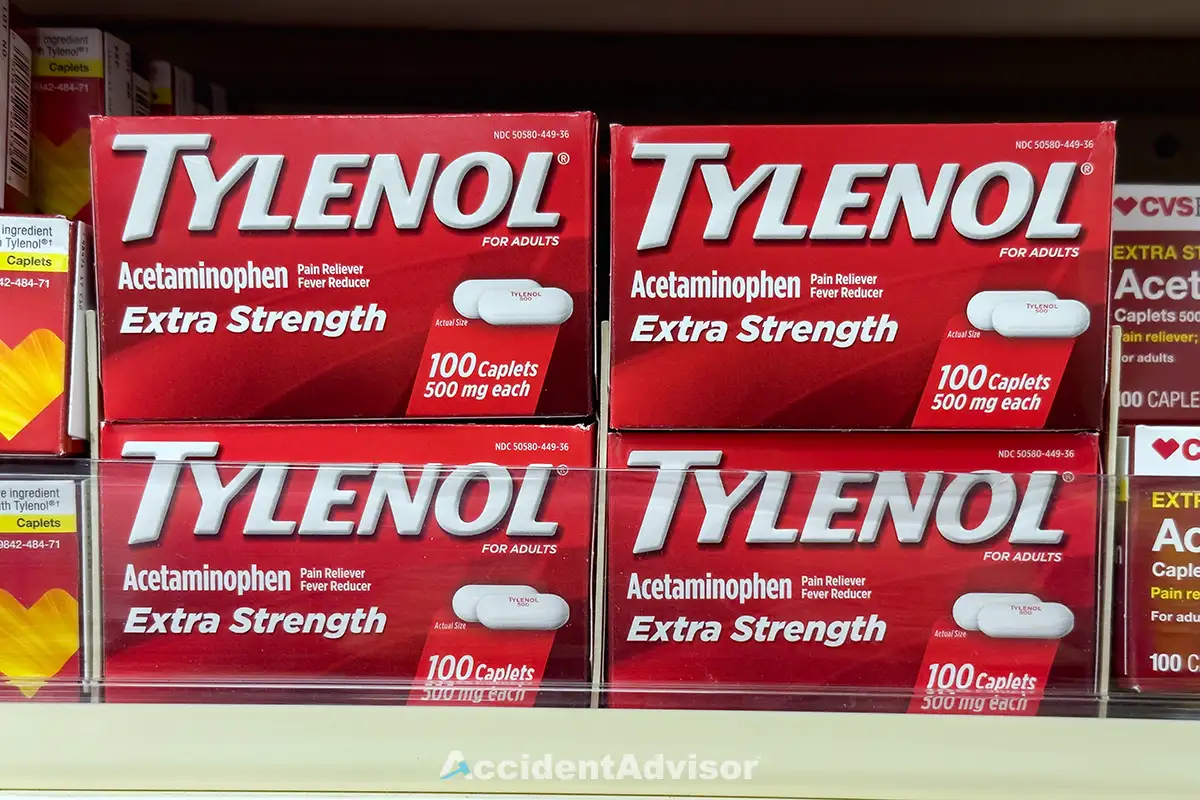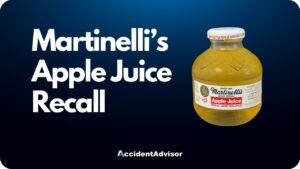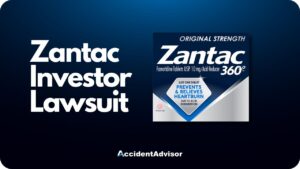A Tylenol lawsuit was certified in 2022 and includes many thousands of potential plaintiffs across all 50 states. Given that the class action lawsuit against Johnson & Johnson involves infant death, ADHD, autism, and ADD claims, this lawsuit could be the largest class action settlement in history.
The first lawsuits against Tylenol date back to 1994, though they have only recently been coordinated into a class action. Continue reading to learn about the Tylenol lawsuit, including the history of the claims, research surrounding the science behind Tylenol’s alleged harmful effects, possible settlement amounts, and what you should do if you think that you or a family member has been injured by using Tylenol.
Is There a Lawsuit Against Tylenol?
Yes, there is currently a lawsuit against Tylenol. Unfortunately, it’s not their first. Back in 1994, Antonio Benedi filed against McNeil Consumer Healthcare, the subsidiary of Johnson & Johnson responsible for manufacturing Tylenol. The claim was that the Tylenol bottle failed to warn consumers that mixing its active ingredient, acetaminophen (also called “APAP”), with alcohol can lead to liver damage.
Due to the injuries he sustained to his liver, Benedi was awarded $8.8 million in federal court, including both compensatory and punitive damages. J&J filed an appeal, but it was rejected.
The next significant cases occurred in 2007 when a one-year-old child died of liver failure after a course of infant Tylenol, and in 2012-2013 when several women suffered liver failure after taking Tylenol as directed for a few days.
Due to rising concerns, a class action against the drug was certified on October 5, 2022, in New York. Since then, new cases have been pouring in involving people taking Tylenol or generic APAP.
The defendants are mostly parents who took Tylenol while pregnant and whose child later developed autism, ADHD, or ADD symptoms.
Note that the case is against not only Tylenol but other APAP-containing medications, both brand name and generic. Here’s a complete list of the acetaminophen-containing drugs involved in the case:
- Tylenol
- Mucinex
- Alka-Seltzer Plus
- Excedrin
- DayQuil/NyQuil
- Goody’s
- Robitussin
- Generic or store-brand APAP
Does Tylenol Cause Autism?
The claim that prenatal exposure to APAP can cause autism in an unborn fetus is an unproven claim but one that has accumulated significant evidence in its defense. The facts supporting or denying this claim are not yet plentiful enough to make an objective conclusion, but here’s what we know so far.
In a 2018 study conducted for the American Journal of Epidemiology, 132,738 mother/child pairs were examined during pregnancy and with follow-up periods of 3-11 years. The study found that the risk for autism in this group was 19% higher than normal, the risk for ADHD was 34% higher, and the risk for other hyperactivity symptoms was 24% higher.
Though this evidence seems incriminating, note that observational studies of this nature do not constitute proof, especially considering the biases in the participant selection criteria. More research is needed to conclusively prove the link between Tylenol and autism.
Does Tylenol Cause ADHD and ADD?
As with autism, Tylenol circumstantially but not definitively can cause ADHD and ADD in unborn children.
An NIH-funded study examined blood from 996 newborns compared with follow-up tests an average of 9 years later. The study found that those with the highest amounts of exposure to prenatal acetaminophen were 2.86 times more likely to be diagnosed with ADHD. It also found them to be 3.62 times more likely to develop autism.
More research is needed to determine if even small amounts of APAP increase these risks, though some doctors like Dr. Zanotti of the Cleveland Clinic note that any fever-reducing or pain-reducing drug poses some risks during pregnancy, and Tylenol is still comparatively the safest.
She also highlights the risks of an untreated fever to an unborn child as being more serious than the risks of taking Tylenol.
Tylenol Lawsuit Claims
The Tylenol lawsuit claims focus on the company’s safety labels, including the recommended dosage, and on whether McNeil knew about the dangers of their drugs without advertising them.
After the Benedi case, the company lowered its daily recommended dose of APAP from 4,000 mg to 3,000 mg at the suggestion of the FDA. Yet, later investigations revealed that McNeil had resisted the FDA’s studies of Tylenol’s potential side effects.
This comes in light of 56,000 emergency visits in the United States every year for acetaminophen poisoning, half of which are unintentional overdoses. Around 500 people die every year from taking these drugs, some of which never knew they took it due to their inclusion in combined medications.
As a result of continued research, claims that taking Tylenol during pregnancy raises a child’s risk of developing autism, ADHD, or ADD have been taken more seriously in recent years, culminating in the ongoing class action tort against McNeil.
Note that the lawsuit takes the position that McNeil failed to inform consumers about the potentially harmful effects of taking their products during pregnancy. Claims are not only responsible for linking the usage of these medications to the development of disorders but also for proving that they were not informed about the risks.
Consider as an example the case of Maguire v. Walmart Stores, which was filed on June 2, 2022, in California. The case focused on claims that acetaminophen is the safest pain reliever for pregnant women and the research on its potential impact on brain development in unborn children, which can cause autism.
According to the case, Maguire took APAP throughout her 1999 pregnancy for headaches and pain, as much as three times a day. She purchased all her medication from Walmart. By the time Maguire’s son was ten years old, he was officially diagnosed with severe autism.
Note that Walmart, the distributor of the medication, was the only defendant. Therefore, not all APAP lawsuits are against the manufacturer. Choosing the right defendant for your case is a significant factor in determining your settlement.
Infant Tylenol Class Action Lawsuit
Another important factor in the current APAP lawsuit is a class action suit already settled against Johnson & Johnson for their infant Tylenol products. The company agreed to pay $6.3 million in a settlement aimed at people who purchased Infants’ Tylenol between October 2014 and January 2020.
This claim did not involve injuries or deaths but instead focused on the company’s marketing. Plaintiffs claimed that images and text referring to infants in the marking of child Tylenol led buyers to believe that the medication was a special formula designed for newborns, which caused them to overpay for the medication.
The settlement allowed parents to claim $2.15 for each bottle of 1-2 fl. oz. of Infants’ Tylenol they purchased during the time frame. They can collect unlimited compensation with proof of purchase or up to $15.05 without it.
How Much Can I Get from the Tylenol Lawsuit?
Due to the severity of the claims, the average settlement for the new lawsuit will likely be $50,000 on the low end, with some sources reporting $10 million on the high end. The current Tylenol lawsuit is far more serious than a case of deceptive advertising, involving long-term injuries and even accidental deaths. Naturally, the predicted settlement amounts are much higher than the previous Infants’ APAP lawsuit.
Not only are McNeil and J&J on the receiving end of these claims, but other drug manufacturers and sellers are potential defendants as well, including Walmart, CVS, Costco, Rite Aid, Safeway, Walgreens, and Target.
The amount of each settlement relies on the severity of the claim, the strength of the evidence, the determination of the jury, and the result of any appeals.
To ensure you get the compensation you deserve, continue reading to learn about whether you qualify for the class action Tylenol lawsuit as well as what you need to do to file your case successfully.
Who Qualifies for a Tylenol Lawsuit?
Parents of children diagnosed with autism spectrum disorder (ASP), ADHD, or ADD, may be eligible for compensation by filing a product liability lawsuit. Due to the need for continuing long-term research on the link between these disorders and Tylenol use, cases require substantial claims to be eligible for financial compensation.
These include verified purchases of Tylenol during the period in question in doses high enough to potentially cause these adverse effects. Families with a history of autism, ADHD, pregnancy complications, or other risk factors for the claimed conditions may not have as strong a case.
Note that since the primary claims of the class action against J&J involve developmental disorders in children whose mothers took Tylenol or generic APAP while they were pregnant, those who suffered liver damage from accidental overdoses will need to file separately.
How to File a Tylenol Lawsuit?
Filing a Tylenol lawsuit requires proof of APAP use during pregnancy followed by a diagnosis of one of the listed developmental conditions. You will need to provide verification that you bought APAP medications during the pregnancy as well as a formal diagnosis of your child’s illness.
However, since the lawsuit is a class-action suit, there are other things to consider beyond acquiring the proper evidence.
As with many class actions, various law firms have websites set up where you can get a free case review to see if you are eligible. The deadline to submit an application to become a plaintiff is set for November 14, 2023.
Once you know that you are eligible, your attorney will be able to confer with the relevant court and plaintiffs’ leadership committee to begin assembling your case.
Even if your case is not viable for the class-action suit, you can still file a personal lawsuit separately. Any of these options will likely require the assistance of an experienced lawyer since class-action lawsuits concern not only your injuries but also require coordinating your claims with those of the group.
Conclusion
The Tylenol lawsuit has recently been combined into a class-action lawsuit. Predicted settlements for these cases are high since they involve serious developmental disorders in children who were exposed to too much acetaminophen during pregnancy.
If you believe you are eligible for compensation due to injuries sustained from the use of Tylenol or generic APAP products, contact an experienced personal injury attorney to see if you qualify for the class-action suit or should file separately for individual compensation.

Rocky Horton
Author
Rocky Horton is a health and safety expert from Chapel Hill, NC. He is the founder of AccidentAdvisor and has been featured in Forbes, Bloomberg, and other publications. Learn more.













